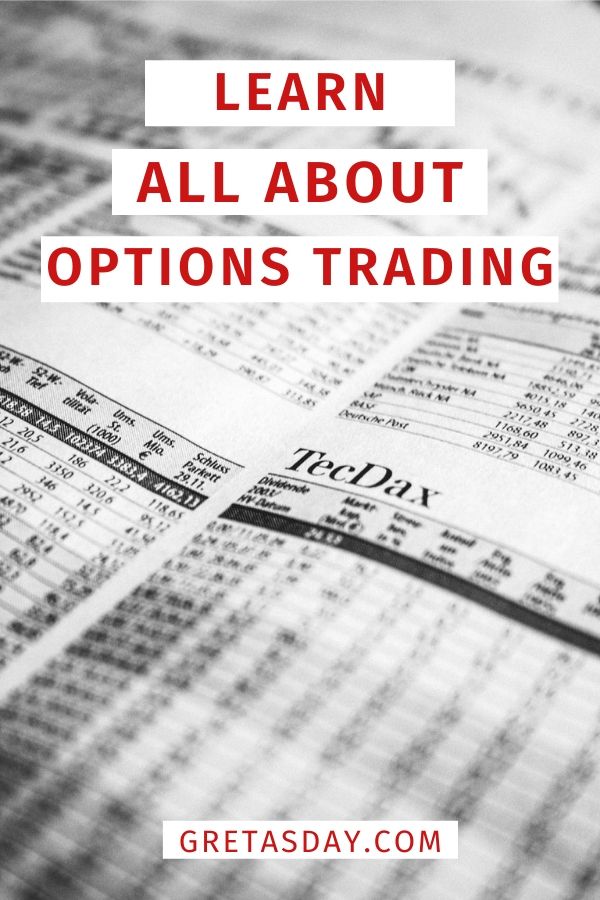It’s never to early to start preparing for your future. One of the best ways to prepare is to start investing your money wisely. The most common investments are mutual funds and stocks, and options trading.
But what are the differences, and how do you determine which is best for you?
What are Mutual Funds
Mutual funds and stocks are pretty straightforward. In a mutual fund, you add your money to a pot of other money, and the fund manager invests it. Usually, the fund invests in stocks and bonds. This is generally considered one of the safest manners of investing for real financial growth. Of course, this doesn’t come without risk. It is possible to lose money in mutual funds.
What are Stocks
Stocks are where you choose what to invest in yourself. You may have someone like a money manager guiding you, or you may just fly by the seat of your pants. Some people really study the stock market, and make decisions based on how the market is moving, while others invest in brands they love like Disney and Etsy.
There are significant differences between investing in mutual funds or stocks when compared to options trading. Those who engage in options trading do experience some significant benefits other investments don’t provide. Options trading involves developing sophisticated investment strategies. This is the reason it is important to choose a broker who can provide the necessary important support for this type of investing.
Options Trading
Prior to anyone considering this type of trading, you need to know how options trading works. It’s a contract between a seller and a buyer concerning a specific type of investment or stock.
Options Trading Terms
There are two types of options. These are known as calls and puts. A ‘call‘ gives the holder the right to buy a stock or other asset at a certain price within a stated period of time. A ‘put‘ allows the holder the right to sell their stock or other asset at a certain price within a specific period of time.
The strike price is the magic number. This is the price that the contract states the assets will exchange hands at. A stock or other asset must meet the strike price before it can be bought or sold.
Benefits
There are many ways options trading can be beneficial to your investing strategy.
Source of portfolio income – When selling options (puts) and not purchasing them, an investor will receive the option payment. Should the option not be exercised, a seller can keep the payment as compensation, as they assumed the contract obligation.
Leverage in investing – An investor can use an options contract to provide them with exposure to a stock they want to purchase shares of outright. They can observe the profits and losses of the company as its stock price moves.
Overall risk reduction for portfolio – With options trading, it is possible to combine ownership of a stock with a put option requiring the stock to be sold when it reaches a specific price. This is known as a protective put. It gives the seller the upside if the stock price increase, but protects them from a total loss if the stock price decreases.
Risks
An options contract can expire with stocks or investments that have lost their value. This could result in an investor having a total loss of whatever they paid for the options contract. The volatility of options trading is a concern for investors who lack the necessary experience.
Time Sensitive
Options trading is an extremely time-sensitive investment. Options contracts are intentionally designed to be for a short period of time. These contracts are usually just a few months in length. It is possible for an options buyer to lose their entire investment. This can happen when the magnitude and direction of a specific price range are correct. Unfortunately, the price change doesn’t occur before the option expires.
Learning Curve
There is a learning curve associated with options trading. Successful options trading requires choosing a good broker. Several brokerage firms provide options trading, and a good broker will help you get started.
Options trading for beginners should be handled by a broker who can help walk you through and explain the process. An investor may have to meet additional regulatory requirements prior to engaging in options trading. Make sure you know how your broker handles orders for options. Over time, you and your broker will develop a relationship. They’ll understand and know what’s important to you exercising an option.
Choosing A Broker
There are a few things you want to look for in a broker. They include
Excellent Customer Support – Customer service agents will be the ones who ensure options trades are done correctly. Make sure your broker, or investment firm, has competent customer service. It is extremely frustrating when a broker’s customer service doesn’t understand what an investor wants them to do with options trading.
Low Commissions – Most brokers will have an excellent commission rate for stocks they provide for options trading. A broker who offers reasonable stock trades may offer higher commissions with options trading.
Excellent Research – Many brokerages provide their investors with special tools, so they can accurately evaluate option trades. This is a valuable feature to help teach options trading for beginners, but not all brokerages provide this service.
Many investors have discovered that over the long term, options trading provides them with the best way to grow their wealth. These are investors who took the time to learn about options trading and understand everything involved with it. They also chose a broker who can handle even the most complicated options trades.







